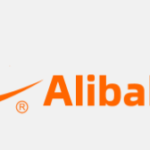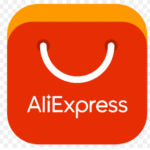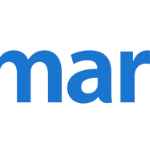Freelance Platforms and Online Earning Opportunities:
In recent years, the gig economy has experienced significant growth, transforming the way people work and earn a living. Freelance platforms and other online opportunities have become increasingly popular, providing individuals with the flexibility to work on a variety of projects and earn income from the comfort of their homes. In this article, we will delve into the world of freelancing and explore various platforms that offer opportunities for online earning.
Understanding Freelancing:
Freelancing refers to a work arrangement where individuals offer their skills and services on a project-by-project basis, often as independent contractors. This model allows workers to choose the projects they take on, set their own schedules, and work from anywhere with an internet connection. Freelancers can find work in a diverse range of fields, including writing, graphic design, programming, marketing, and more.
Key Advantages of Freelancing:
- Flexibility: One of the primary benefits of freelancing is the flexibility it offers. Freelancers can choose when and where they work, allowing for a better work-life balance.
- Diverse Opportunities: Freelancers have the chance to explore various projects and industries, gaining exposure to different types of work and expanding their skill sets.
- Autonomy: Freelancers have control over their careers, deciding which projects to take on and setting their own rates. This autonomy can lead to a more fulfilling and satisfying work experience.
Popular Freelance Platforms:
- Upwork: Upwork is one of the largest freelancing platforms, connecting clients with freelancers across a wide range of industries. Users can create profiles, showcase their skills, and bid on projects posted by clients.
- Fiverr: Fiverr is a platform that allows freelancers to offer their services, or “gigs,” starting at $5. Freelancers can create profiles, set their own prices, and promote their skills to a global audience.
- Freelancer: Freelancer is a competitive platform that connects clients with freelancers in areas such as writing, graphic design, programming, and more. Freelancers can bid on projects, and clients choose the best fit for their needs.
- Toptal: Toptal is known for connecting clients with top freelancers in the fields of software development, design, and finance. Toptal has a rigorous screening process to ensure the quality of talent available on the platform.

Other Online Earning Opportunities:
- Affiliate Marketing: Affiliate marketing involves promoting products or services and earning a commission for every sale made through your referral. This can be done through blogs, social media, or websites.
- Online Courses and Tutoring: Platforms like Udemy and Skillshare allow individuals to create and sell online courses. Additionally, tutoring services such as Chegg Tutors provide opportunities for educators to earn income by helping students.
- Virtual Assistance: Virtual assistants provide administrative support to clients remotely. Tasks may include email management, scheduling, data entry, and more. Platforms like Virtual Assistant Jobs and Time Etc connect virtual assistants with clients.
As technology continues to advance, the gig economy is evolving at a rapid pace. Traditional employment models are being reshaped, and more people are embracing the idea of working independently. The gig economy encompasses a wide range of workers, from freelancers and part-time workers to independent contractors and gig workers in the sharing economy.
Remote work has become a prominent feature of the gig economy, with many individuals opting for the freedom and flexibility it provides. The COVID-19 pandemic has further accelerated this trend, pushing companies and workers to adapt to remote work environments. As a result, online freelance platforms have witnessed increased demand and activity.
Challenges and Considerations:
While the gig economy offers numerous benefits, it also presents challenges and considerations for freelancers and those exploring online earning opportunities. Some common challenges include:
- Income Stability: Freelancers often face fluctuations in income due to the nature of project-based work. It’s crucial for freelancers to manage their finances wisely and plan for periods of lower income.
- Client Relationships: Building and maintaining positive client relationships is essential for freelancers. Effective communication, meeting deadlines, and delivering high-quality work are key factors in establishing a positive reputation on freelance platforms.
- Self-Discipline: Working independently requires a high level of self-discipline. Freelancers need to manage their time effectively, set realistic goals, and stay motivated to succeed in the gig economy.
- Competition: The gig economy can be competitive, with freelancers from around the world vying for the same projects. Building a strong and unique personal brand can help freelancers stand out in a crowded marketplace.
- Legal and Tax Considerations: Freelancers are responsible for managing their taxes, invoicing clients, and understanding the legal implications of their work. It’s advisable to seek professional advice to navigate these aspects successfully.
Future Trends in the Gig Economy:
As we look to the future, several trends are likely to shape the gig economy further:
- Specialized Platforms: Niche and specialized freelance platforms catering to specific industries or skills may emerge, offering a more targeted approach for both clients and freelancers.
- Blockchain and Smart Contracts: The use of blockchain technology and smart contracts could enhance security, transparency, and trust within freelance transactions, providing a more reliable environment for both parties.
- Skill Development and Training: As the gig economy grows, there may be an increased focus on providing training and development opportunities for freelancers to acquire new skills and stay competitive in the evolving job market.
- Hybrid Work Models: A blend of traditional employment and freelance work may become more prevalent, allowing individuals to enjoy the benefits of both stability and flexibility.
Tips for Success:
Entering the gig economy and pursuing online earning opportunities can be an exciting but challenging endeavor. Here are some essential tips to help individuals navigate the gig economy successfully:
- Build a Strong Online Presence: Create a polished and professional profile on freelance platforms. Showcase your skills, experience, and previous work to make a strong first impression.
- Specialize and Differentiate: Identify your core strengths and specialize in a particular niche or skill set. This can help you stand out in a competitive marketplace and attract clients seeking specific expertise.
- Set Realistic Rates: Research industry standards and set competitive yet realistic rates for your services. Consider factors such as your skill level, experience, and the complexity of the projects you undertake.
- Develop Effective Communication Skills: Clear and timely communication is essential in the gig economy. Respond promptly to client inquiries, ask clarifying questions, and keep clients informed about project progress.
- Create a Reliable Work Schedule: While one of the perks of the gig economy is flexibility, having a consistent work schedule can contribute to productivity and client satisfaction.
- Invest in Continuous Learning: Stay abreast of industry trends, tools, and technologies relevant to your field. Continuous learning not only enhances your skills but also keeps you competitive in a rapidly evolving job market.
- Network and Collaborate: Actively participate in online communities, forums, and networking events related to your industry. Building a strong professional network can lead to new opportunities and collaborations.
- Manage Finances Wisely: Keep meticulous records of your income and expenses. Set aside funds for taxes and other business-related costs to avoid financial stress down the line.





















